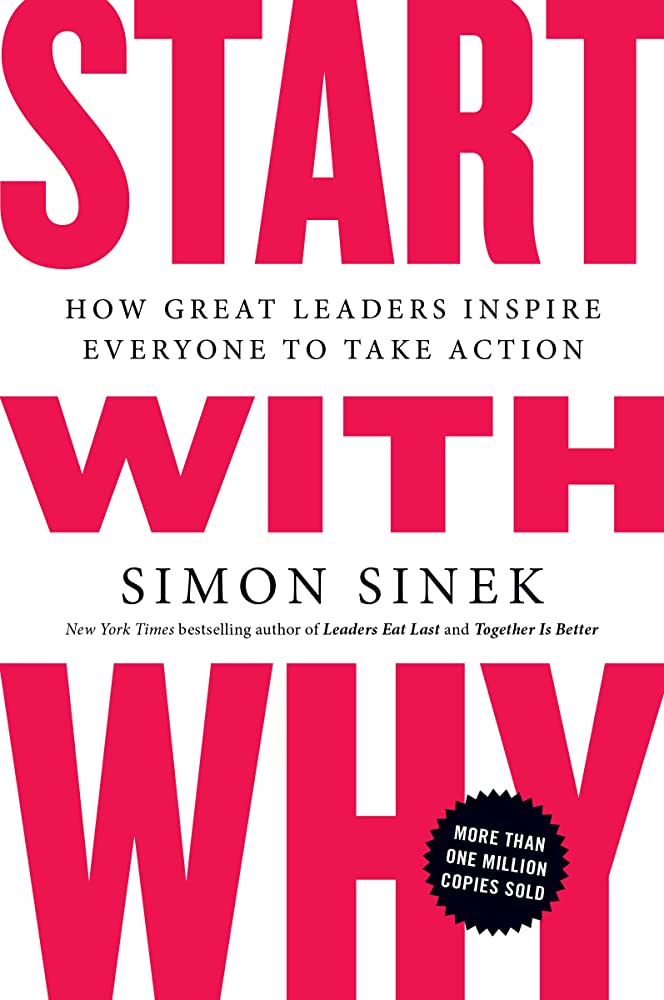Nine Lies About Work: A Freethinking Leader’s Guide to the Real World
RATING


In “Nine Lies About Work“, authors Marcus Buckingham, known for his work in the field of talent management, and Ashley Goodall, an experienced corporate executive, take a novel approach to examining workplace conventions. They identify 9 prevalent assumptions about work – referred to as ‘lies’ – that, they argue, are counterproductive and hinder individual and organizational performance.
The 9 ‘lies’ include claims such as “people care which company they work for”, “the best people are well-rounded”, “people need feedback”, “people can reliably rate other people”, or “work-life balance matters most”, among others. The authors provide evidence and rationale to debunk each one of these claims.
- People care which company they work for: Buckingham and Goodall argue that people actually care more about which team they’re on within the company. The immediate team environment and its leader often matter more for employee satisfaction and performance than the company’s overall reputation or brand.
- The best plan wins: The authors posit that plans, no matter how well crafted, can never fully predict or control the future. Instead, they propose that adaptability, real-time reactions and continuous learning are far more valuable.
- The best companies cascade goals: This suggests that companies should set top-down goals. The authors disagree, asserting that the best outcomes are achieved when employees are given freedom to set their own goals, aligned with their strengths and interests.
- The best people are well-rounded: Contrarily, they argue that people excel when they can leverage their unique strengths, rather than trying to be good at everything. Diversity of strengths across a team leads to better results.
- People need feedback: They distinguish between feedback (often seen as criticism) and attention. While feedback can make employees defensive, attention, particularly to what an employee is doing right, leads to learning and growth.
- People can reliably rate other people: They argue that ratings often talk more about the rater than the ratee and are too subjective to be reliable. It’s better to focus on objective outcomes and individual improvements.
- People have potential: The authors question the conventional notion of “potential” as it often leads to biased and restrictive labeling. They suggest focusing on people’s unique strengths and what they can do right now.
- Work-life balance matters most: They argue that love for work is more critical. When people are engaged and find meaning in their work, the notion of balancing it against life becomes less relevant.
- Leadership is a thing: They contend that leadership is not a consistent set of characteristics, and it cannot be defined universally. Leadership varies from person to person, depending on their strengths and the team they lead.
Principally, Buckingham and Goodall argue for a more human, individual-centered approach to work, where people’s unique strengths are recognized and leveraged, and they are treated as individuals rather than as interchangeable units. The book itself is addressed to the ‘freethinking leaders’ who understand from experience the existence of these rooted misconceptions and are ready to embrace the contemporary approaches to management and leadership based on constant evaluation of new information, and not on established tradition.
Overall, “Nine Lies About Work” provides a fresh and thought-provoking perspective on common workplace beliefs. Buckingham and Goodall’s approach is grounded in reality and practical experience, making it a refreshing antidote to conventional wisdom and generic business advice.
Furthermore, the book’s structure, centered around the “nine lies”, makes it very easy to digest and understand. Each “lie” is discussed thoroughly, with a good balance of evidence, anecdotes, and practical implications, making the book a compelling and quite engaging read.
Finally, the core book strength is its focus on the individual. The authors argue convincingly that organizations should recognize and leverage the uniqueness of their employees, rather than trying to mold them into a preconceived ideal.
While the book’s contrarian approach is refreshing, some readers may find the labelling of certain principles as “lies” overly provocative — mainly for the sake of being provocative. For instance, the claim that “people need feedback” is broadly seen as fundamental to professional growth, and the authors’ attempt to refute it may seem counterintuitive. Their other claims can be seen as controversial as well — for example, their insistence of moving away from work-life balance onto something similar to “work as a lifestyle”.
Moreover, while the authors provide somewhat compelling arguments for each “lie”, there is limited practical advice on how to apply their insights in the real world. This might leave readers who are looking for concrete steps on how to implement these changes somewhat disappointed.
Finally, many of the authors’ proposed alternatives to these “lies” are not very applicable to all business spheres. For example, not every company or job (and, perhaps, not even a majority) can offer what the authors see as an alternative to the aforementioned work-life balance — that is, shifting attitude towards work as something good. And the importance of good teams (instead of company culture) is much less noticeable in smaller companies with just a few dozen people there, where overarching culture ultimately prevails.
Forget what you know about the world of work
You crave feedback. Your organization’s culture is the key to its success. Strategic planning is essential. Your competencies should be measured, and your weaknesses shored up. Leadership is a thing.
These may sound like basic truths of our work lives today. But actually, they’re lies. As strengths guru and bestselling author Marcus Buckingham and Cisco Leadership and Team Intelligence head Ashley Goodall show in this provocative, inspiring book, there are some big lies–distortions, faulty assumptions, wrong thinking–that we encounter every time we show up for work. Nine lies, to be exact. They cause dysfunction and frustration, ultimately resulting in workplaces that are a pale shadow of what they could be.
But there are those who can get past the lies and discover what’s real. These freethinking leaders recognize the power and beauty of our individual uniqueness. They know that emergent patterns are more valuable than received wisdom and that evidence is more powerful than dogma.
With engaging stories and incisive analysis, the authors reveal the essential truths that such freethinking leaders will recognize immediately: that it is the strength and cohesiveness of your team, not your company’s culture, that matter most; that we should focus less on top-down planning and more on giving our people reliable, real-time intelligence; that rather than trying to align people’s goals we should strive to align people’s sense of purpose and meaning; that people don’t want constant feedback, they want helpful attention.
This is the real world of work, as it is and as it should be. Nine Lies About Work reveals the few core truths that will help you show just how good you are to those who truly rely on you.
“Nine Lies About Work” is a valuable read for leaders, managers, and HR professionals seeking to challenge traditional workplace norms and beliefs. It provides a new perspective that can lead to more human-centered and individual-focused practices.
For those wanting to learn about more types of corporate culture where the employee voice is of greater importance, check out our reviews on “Work Rules!” by Laszlo Bock where he discusses the corporate culture at Google, or “No Rules Rules” by Reed Hastings about Netflix. For more ideas about freethinking leaders, you might be interested in “Brave New Work” by Aaron Dignan.
Senteo Subject Category

This book blends aspects of organizational behavior, leadership, and human resources, providing a critique of commonly held beliefs in these areas. It builds itself on challenging convention and advocating for a more human and individual-focused approach to work. Overall, it is focused primarily on research, with some tactical application opportunities mixed within.
See content on this topic

Sales training for front line along with basic development and coaching principles for line management.
Understanding how leaders must evolve with relation to the evolution of business models, new management models, and the significant changes to the workforce with Digital Natives now making up more than 50% of the workforce globally.
Understand the theory and mechanics of developing and managing a customer-centric and experience-driven corporate culture that is consistent and stable and includes elements of Employee Experience (EX) and Employee Relationship Management (ERM).
Understanding the evolution of leadership styles, management models, organizational structures, performance measurement and guiding change in the evolution of business models from product-centric to customer-centric and even relationship-centric.
Understand how to manage both internal and external digital transformation while considering the landscape for digital business models and the effect on traditional business models. Understanding organizational readiness for transformation and the role of corporate culture in managing transformations.
The changes in consumer behavior, employee behavior, and the evolution of business models in the digital age cause significant difficulties and imperatives for leaders who must develop new skills and evolve their leadership styles to be effective in this fast changing, challenging, and competitive environment.
Understanding how leaders must evolve with relation to the evolution of business models, new management models, and the significant changes to the workforce with Digital Natives now making up more than 50% of the workforce globally.
Understand how to manage both internal and external digital transformation while considering the landscape for digital business models and the effect on traditional business models. Understanding organizational readiness for transformation and the role of corporate culture in managing transformations.
The changes in consumer behavior, employee behavior, and the evolution of business models in the digital age cause significant difficulties and imperatives for leaders who must develop new skills and evolve their leadership styles to be effective in this fast changing, challenging, and competitive environment.
Understanding how to design & manage change/transformation programs in organizations of different sizes. This course will help any size team or organization to better deal with change & transformation on any scale.




 Copy Link
Copy Link
 E-mail
E-mail
 LinkedIn
LinkedIn
 Facebook
Facebook
 Telegram
Telegram
 WhatsApp
WhatsApp















 Go Back
Go Back
Leave a Reply
You must be logged in to post a comment.